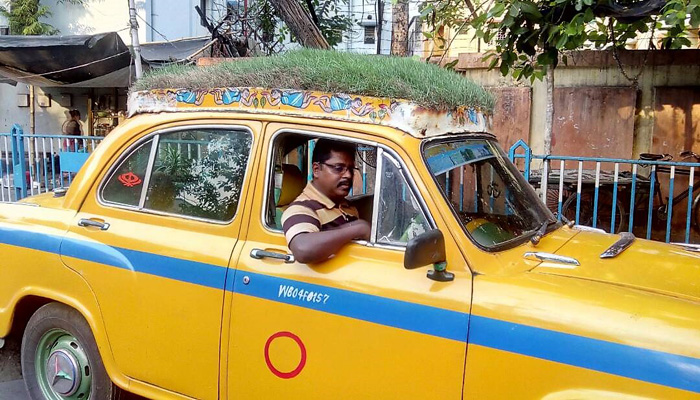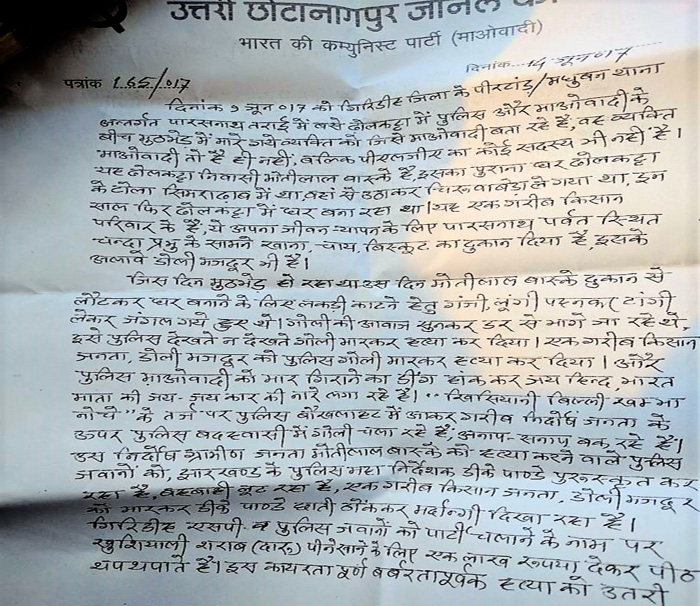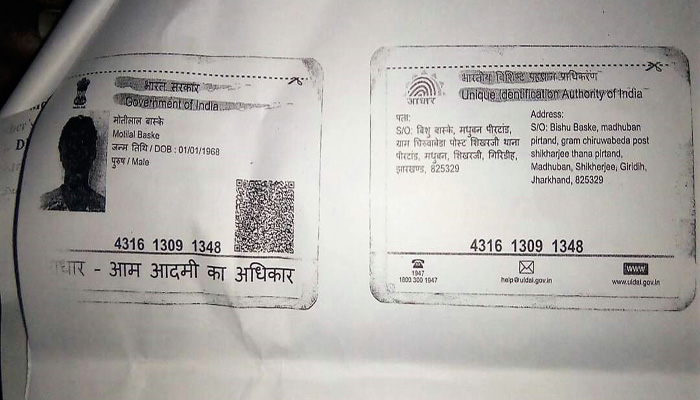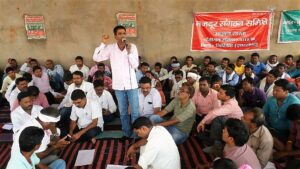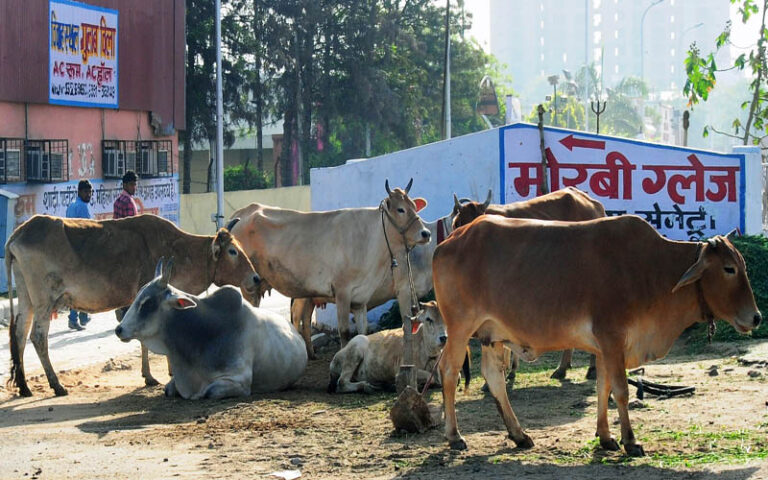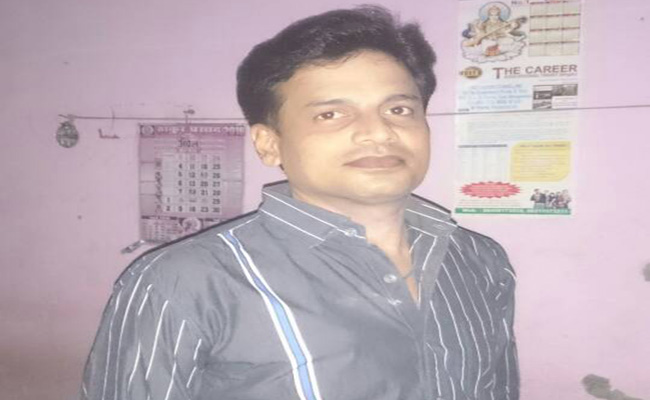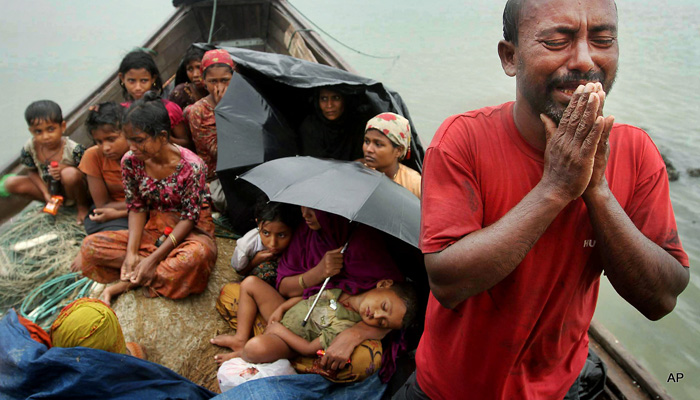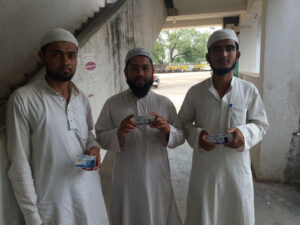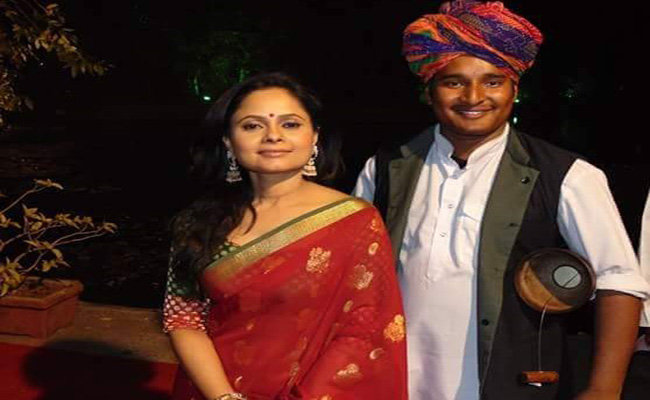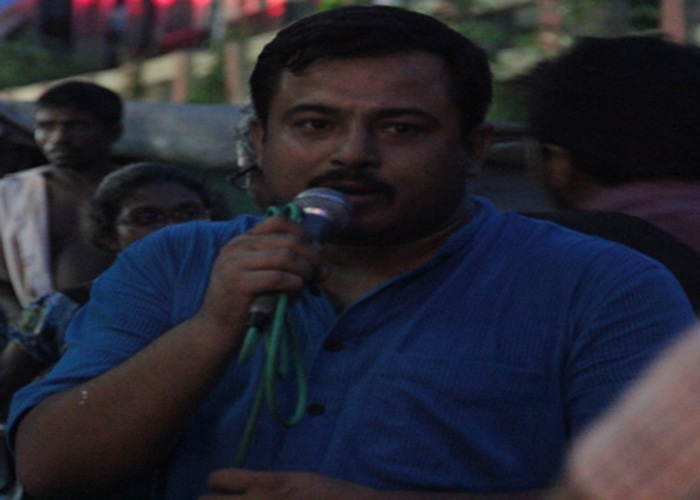Kolkata: Perhaps he drives on the coolest cab in India, which not only has a perfectly green rooftop, but also has a mini garden of a sort created on the tray just behind his cab’s backseat. Meet Dhananjay Chakraborty, a Kolkata-based cabbie, with a difference.
It’s been over two years since Dhananjay aka Bapi has been driving this non-AC taxi on the streets of Kolkata. A green crusader of a sort has not only been providing respite to many of the passengers using his service but also spreading the message of “Going Green” to combat climate change.
What he began as a passion has now become an integral part of his life. His taxi, which he fondly calls his Shobuj Rath or Green Chariot, has now famous. In fact it can safely, be considered as the most eco-friendly taxi in the country.
Road trip to promote “Go Green”
Dhananjoy, who is also known as Gecho Bapi, now runs a non-governmental organisation called Amra Sabuj Sathi (Friends of the Green). It has around 12 members on board, who share the same passion as Dhananjay – saving the environment.
This winter, the Friends of the Green, are committed to fixing up a meet with the President of India. Elaborating on their green mission, he reveals, “We plan to meet the President by the end of this year. We, through the President want to spread the message of going green, across the country.”
Sipping a cup of tea at a tea kiosk in Tollygunge, he elaborately tells eNewsroom, “My ambassador as well as this non-AC yellow taxi (Dhananjay does not own it), will be showcased before the President. The idea to make people understand a small thing,where there is a will, there is a way. Both the vehicles have a neat rooftop terrace lawn, which has a green carpet of Chinese grass adorning it. We will also be meeting school students and clubs on our way to New Delhi.”
As Dhananjay and his team will embark on a road trip, they will distribute leaflets (in English and Hindi) and around 500 saplings to motivate people to plant trees.
Mission Green Gets a Thumbs up
Eminent Kolkata-based artists like Sanatan Dinda, Uday Deb and Partha Dasgupta have come out in support of this initiative. “I will be sketching a few graphite cartoons, highlighting the wrongs that we keep doing unintentionally to the environment. My message will be blatant and hard hitting to the onlooker,” says Uday Deb, an illustrator with Ei Shomoy.
Not without Didi’s Blessings
Dhananjay, who has been invited by the Chief Minister of West Bengal, Mamata Banerjee, to participate in the 2015 Durga Puja carnival, is very clear on seeking “Didi’s” blessings before embarking on his journey. He adds, “Didi had made a special effort to showcase my Shobuj Rath before international delegates. I will start my journey to New Delhi, only after getting her blessings.”
Dhananjay’s Green Chariot
His green terrace taxi, has been grabbing a lot of attention. He even has 3000 followers on his Facebook page. Random people mob him with requests of letting them pose with his green chariot. And in exchange all that he demands is that they too plant a tree.
Elaborating on how he got this idea of going green, he candidly reveals, “My friend came across a photograph of a taxi, which had a terrace lawn like the one I have, now. The idea intrigued me a lot and I tried replicating it on my taxi, as I love plants.”
He adds, “Till date I live in a rented accommodation, but that hasn’t stopped me from planting plants. This taxi of mine is a message to everyone that they should plant trees, as many as they can. If I can make my cab a green car, then why can’t you.”


